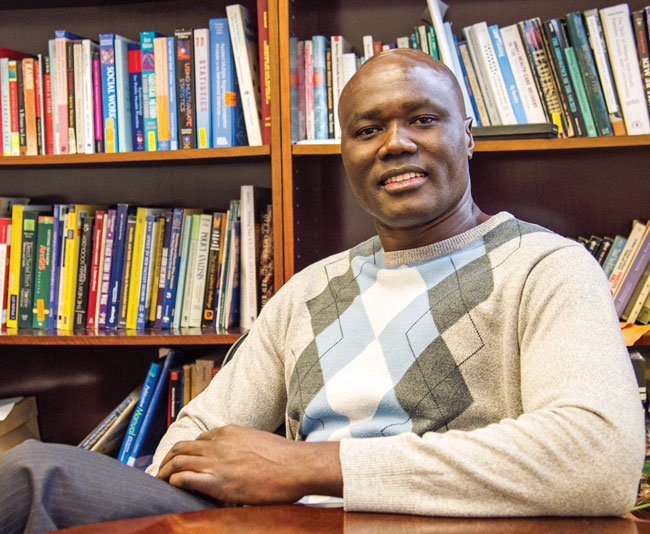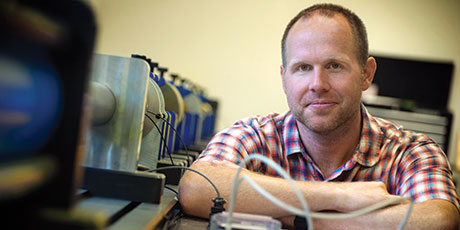copycat
Degrees of Influence
Study shows teens living with two college-educated parents less likely to drink alcohol

Eusebius Small
Having college-educated parents not only boosts kids’ chances for their own career success, but may also reduce their risk for abusing alcohol, drugs, and other dangerous substances.
A study led by social work Assistant Professor Eusebius Small found that high school seniors living with two college-educated parents are significantly less likely to drink alcohol or smoke marijuana than those living with one parent.
Dr. Small and his team analyzed data on 14,268 teens to determine the impact of family structure and parental education on adolescents’ substance use. Those living only with their mothers were 54 percent more likely to use alcohol, while those living only with their fathers were 58 percent more likely to smoke marijuana.
The researchers concluded that family structure and parental education have a more substantial influence on a teenager’s well-being than gender, age, or where he or she lives.
“We know from previous research that early drinking and drug use are linked to social, economic, emotional, and behavioral problems including violence, depression, and precarious sexual activity,” Small says. “Addressing these environmental concerns in concert with related individual problems could reduce substance use occurrences among our young people.”
He conducted the study with Arati Maleku, a doctoral student and adjunct assistant professor in the UT Arlington School of Social Work, and Rie Suzuki, an assistant professor of public health and health sciences at the University of Michigan-Flint.

















